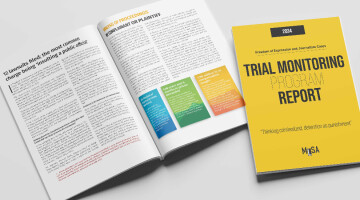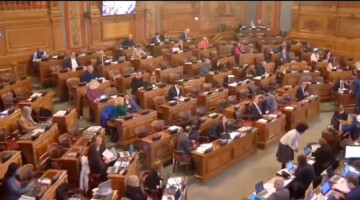In today’s Chamber judgment in the case of HDP deputy Filiz Kerestecioğlu for Ankara, the European Court of Human Rights held, by a majority, that there had been a violation of Article 10 of the European Convention on Human Rights.
The case concerned the withdrawal of parliamentary immunity from the applicant, an elected member of the Turkish National Assembly, a decision which in her submission was the result of her political opinions. She also complained of a violation of her right to freedom of expression.
Referring to its case-law from the Grand Chamber judgment in Selahattin Demirtaş, the Court had already found that the constitutional amendment of 20 May 2016, removing the parliamentary immunity of elected representatives in the National Assembly, was part of terrorism prevention measures. “It could be seen from the reasoning behind that amendment that it sought to restrict the political speech of parliamentarians,” the court said.
In the light of that case-law, the Court took the view that the withdrawal of the applicant’s parliamentary immunity through the constitutional amendment constituted in itself an interference with her right under Article 10 of the Convention. Confirming the Grand Chamber’s analysis in Selahattin Demirtaş, a judgment delivered on 22 December 2020, the Court found that there had been a violation of Article 10 of the Convention.
Relying on Article 9 (right to freedom of thought, conscience and religion), Article 10 (freedom of expression), Article 11 (freedom of assembly and association) and Article 18 (limitation on use of restrictions on rights) of the Convention, the applicant, Kerestecioğlu, complained that the constitutional amendment of 20 May 2016 withdrawing her parliamentary immunity had violated her rights to freedom of expression and freedom of assembly. The application was lodged with the European Court of Human Rights on 11 November 2016.
The Court observed that by a petition of 29 July 2015, all MPs of the HDP, the applicant included, had requested the waiver of their parliamentary immunity. However, on 3 August 2015, the National Assembly’s Bureau had indicated that the mere fact that an MP requested the waiver of his or her parliamentary immunity was insufficient for the measure to be enforced. The Court thus took the view that the petition did not affect its finding about the withdrawal of the applicant’s parliamentary immunity following the constitutional amendment of 20 May 2016.
The Court held that Turkey was to pay the applicant 5,000 euros (EUR) in respect of non-pecuniary damage and EUR 4,000 in respect of costs and expenses.















